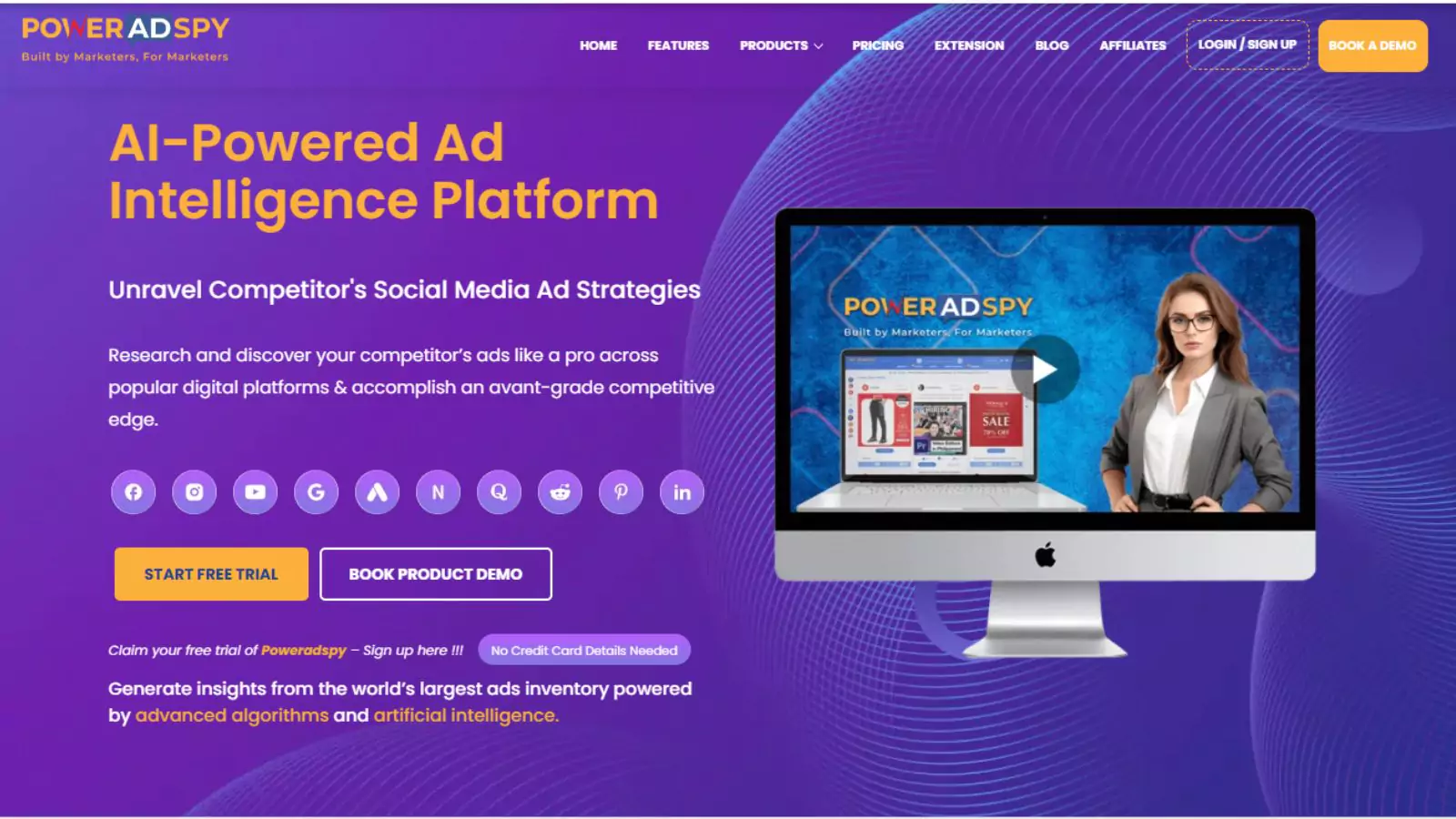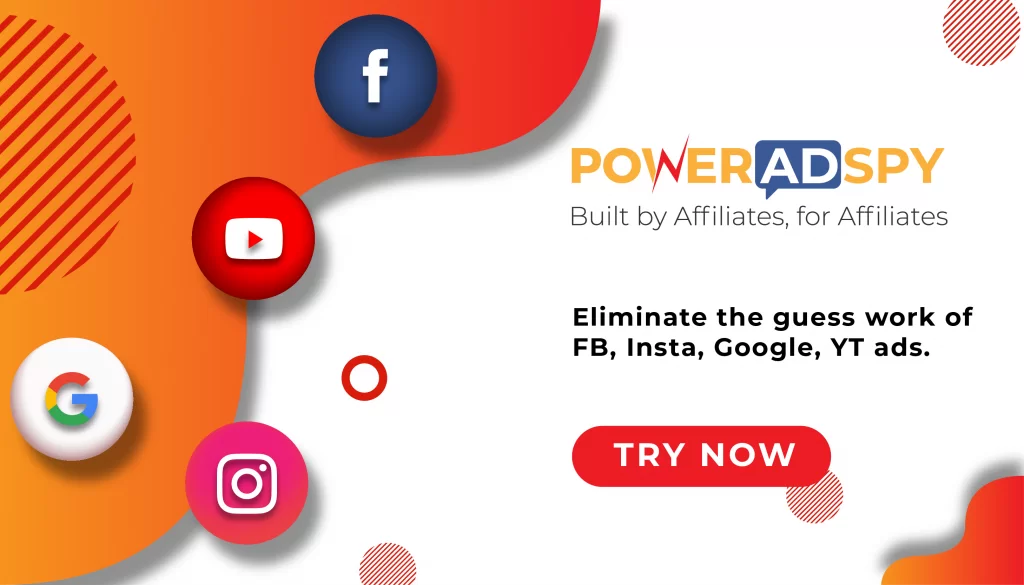5+ Tips to Create a Powerful SEO Advertising Strategy
Crafting a powerful SEO advertising strategy for 2024 isn’t just about getting your content noticed—it’s about staying ahead of the competition. With Google’s algorithm constantly evolving, the rules of the game are always changing. But don’t worry; we’re here to help you navigate this dynamic landscape.
Effective SEO advertising is more than just keywords and backlinks. It’s about understanding your audience, using the right tools, and making every click count. And yes, we know that figuring out SEO Google Ads can seem like a maze. But that’s why we’re giving you the ultimate guide.
In this blog, you’ll discover 9+ tips to create an SEO ads strategy that not only boosts your visibility but also drives real results. Get ready to explore advertising and watch your traffic soar.
Hit ‘Play’ Button & Tune Into The Blog!
What is SEO Advertising?
Search engine optimization (SEO) advertising, sometimes known as SEO mixed with effective advertising tactics, is a tactic that seeks to increase a website’s visibility on search engine results pages (SERPs) to draw in organic traffic.
Optimizing a website’s content and structure to rank higher in organic search listings is the main goal of SEO, as opposed to paid search adverts, which must be paid directly to appear at the top of search results. With PowerAdSpy, an ad spy tool, you can learn ad strategies of competitors.
SEO vs Paid Advertising
SEO is a long-term strategy focused on improving a website’s organic rankings by optimizing content, structure, and technical aspects. Unlike paid methods, it doesn’t require direct payments to search engines. The process takes time, but it aims to boost visibility and attract users through relevant, quality content and natural link-building.
In contrast, paid advertising like Pay-Per-Click (PPC) offers instant visibility by placing ads on search engines or social media platforms for a fee. Advertisers bid on keywords, and ads appear at the top of search results. While PPC provides immediate traffic, it requires ongoing investment, as the ads stop showing once the budget runs out. Combining both can enhance overall online presence.
Why SEO Advertising Is Essential For Your Business To Succeed
Nowadays, every industry is highly competitive, and businesses are constantly vying for customers. To stand out, your business must have a strong presence on search engine results pages (SERPs). This visibility can significantly impact who wins the sale—you or your competitor.
Here’s why SEO advertising is essential for your business to succeed:
- Visibility and Traffic: Most online experiences begin with a search engine, making it imperative that your website appears in search results. SEO advertising helps increase your visibility, driving more organic traffic to your site.
- Credibility and Trust: Websites that rank higher in search results are often perceived as more trustworthy and authoritative by users. Good SEO practices help build this trust, making customers more likely to choose your business over others.
- Competitive Edge: Your competitors are likely investing in SEO to capture your potential customers. By optimizing your site, you ensure that you’re not left behind and can effectively compete in your industry.
- Long-Term Growth: Unlike paid advertising, which stops generating traffic once the budget is exhausted, SEO provides long-lasting results. A well-optimized site continues to attract visitors and generate leads over time.
- Cost-Effectiveness: While SEO requires an initial investment, it’s cost-effective in the long run. Once you achieve high rankings, maintaining them becomes easier, leading to a steady flow of free, organic traffic.
By incorporating SEO advertising into your digital strategy, you can enhance your online presence, outshine competitors, and drive your business toward long-term success.
Read More:
10 Best Strategies For Effective Advertising- The Game Changer
What Is Mobile Marketing And Its Benefits?
What Are SEO Ads: Your Ultimate Guide to Success
6 Easy SEO Advertising Tips for 2024
So how does one create a powerful SEO marketing plan? Below are some pointers for you.
Make a List Of The Topics
Think about how you want your intended audience to be served by your content:
- Respond to inquiries
- Identify your discomfort areas
- Resolve issues
Next, compile a list of subjects and research keywords for each one. Google is where all roads lead.
Enter your search term into the search field and take note of the list of recommendations that appear beneath it. Real keyword searches are reflected in that list.
You’ve just been given a list of pertinent keywords from Google.
Look for more keyword ideas by searching for your topic and then skimming the first page of results. Pay attention to the parts labeled “people also ask” and “related searches.” Go through each title tag and look for word patterns.
Suggested terms will appear at the top of the SERP when the topic is searched for using Google Images.
Lastly, keyword tools provide topic-related keyword ideas. They also provide the volume of searches and degree of competition for each specified keyword. You may also examine the keywords that are derived from Google.
After completing your study, compile a list of short-tail keywords.
Make a List Of Long-Tail Keywords
Long-tail keyword users have extremely focused search intent. For a very particular target market, writing for these terms can thereby enhance traffic, engagement, and lead conversion.
Use the same keyword research methods as in step #1 to identify long-tail keywords related to your topic.
Obtaining long-tail keywords from client or customer feedback is one of the methods:
- Evaluation surveys
- Comments on blogs and social media
- Communications for customer support
Create a list of long-tail keywords for each short-tail keyword after conducting this study.
Analyze the SEO Tactics of Your Competitors
Learn from the successes and failures of your competitors by analyzing their SEO tactics. This competitive analysis can provide valuable insights to help your website thrive.
By examining your competitors’ SEO strategies, you can:
- Identify and exploit gaps in their approach.
- Replicate the tactics that have proven successful for them.
- Prioritize the most important SEO tasks for your own site.
A competitor’s SEO review can reveal opportunities to improve your content, structure, and keyword focus. By taking a more targeted approach than your rivals, you can address specific audience needs, offering tailored content that stands out in search engine results and sets your website apart. This ensures you stay competitive and relevant in your industry.
But wait—there’s more! Enter PowerAdSpy, your ultimate ads spy tool that lets you dive deep into your competitors’ ad strategies. With PowerAdSpy, you can analyze their ad performance, uncover what works, and refine your approach for maximum impact. Ready to take your strategy to the next level? Let’s learn more about this in detail!
PowerAdSpy- AI-Based Ad Intelligence Tool
PowerAdSpy is an advanced AI-powered ad intelligence tool that provides deep insights into competitors’ advertising strategies. This ads spy tool is invaluable for businesses seeking to refine their ad approaches and develop effective campaigns.
PowerAdSpy offers a range of essential features for enhancing ad engagements:
- Extensive Ad Library: Access a vast collection of millions of ads from over 100 countries. Users can easily explore competitors’ ads and identify successful campaigns with just a few clicks.
- Ad Search: Find ads by using keywords, advertiser names, domains, or other criteria. This feature helps users locate relevant ads within their niche or industry.
- Ad Analytics: Gain comprehensive insights into ad performance, including engagement metrics such as likes, shares, and comments, along with detailed demographic data on target audiences.
- Targeting Insights: Discover the targeting options used in ads, including demographics, interests, behaviors, and placements, to enhance your targeting strategies.
- Ad Creatives: View various ad creatives, including images, videos, and copy, to analyze competitors’ messaging and design techniques.
- Bookmarking: Save and organize valuable ad insights and audience profiles with a single click. Bookmarking ads and their details aids in strategic planning and ad development.
With these features, PowerAdSpy empowers users to craft high-performing ads by leveraging detailed competitor insights and optimizing their ad strategies.
Define Your Most Valuable Page
Identifying your most valuable pages is essential for effective SEO advertising. Focus on optimizing pages that drive significant traffic and conversions, such as product landing pages or high-performing blog posts.
Start by analyzing which pages generate the most interest and engagement. These often include content that resonates with your audience and aligns with their search intent. Once you’ve pinpointed these valuable assets, direct your SEO advertising efforts toward enhancing their visibility.
Here are some key strategies to optimize these pages:
- Keyword Research: Identify high-impact keywords relevant to your offerings. Focus on terms that potential customers frequently use to search for your products or services.
- On-Page SEO: Incorporate targeted keywords strategically within your titles, meta descriptions, and image alt tags. This helps search engines understand the content and improves your chances of ranking higher in search results.
- Content Refresh: Regularly update your content to keep it relevant and engaging. Fresh information encourages user interaction and can positively impact your SEO performance.
By concentrating your SEO advertising efforts on these high-value pages, you can maximize their potential and drive more targeted traffic to your site.
Update and Enhance Your Advertising Content
To succeed in SEO advertising, it’s essential to produce high-quality, educational, and entertaining content that resonates with your target audience. Regularly updated content signals relevance to search engines, making it crucial to keep your content fresh and engaging.
Consider conducting content audits periodically to evaluate your existing material. It allows you to make necessary adjustments, introduce new sources, and enhance the overall quality.
Here are some effective content types tailored for SEO advertising:
- Blog Posts: Write insightful articles that address common questions or pain points related to your industry. Incorporate keywords like “SEO Google Ads” to enhance visibility and attract the right audience.
- In-Depth Articles: Develop comprehensive guides that explore topics of interest. This establishes your authority and encourages sharing, further amplifying your reach.
- Infographics: Visual content can simplify complex information and attract attention. Create infographics that convey key statistics or processes in a visually appealing way.
- Videos: Engaging video content can enhance user experience and keep visitors on your site longer. Consider tutorials or product demonstrations that showcase your offerings effectively.
By consistently producing insightful and entertaining content, you not only cater to your audience’s needs but also improve your SEO advertising strategy.
User-focused Advertising Design
User-centered design is a crucial element of any effective SEO advertising strategy. By prioritizing the needs and preferences of your target audience, you can enhance their experience on your site, leading to increased dwell time and improved perceptions of your website’s relevance by search engines.
Implementing user-focused design can significantly impact your website’s traffic and search rankings. Key UX design elements that align with SEO best practices include:
- Fast Load Times: Ensuring your pages load quickly is vital. Speed not only enhances user satisfaction but also reduces bounce rates, positively influencing your SEO performance.
- Mobile Responsiveness: With a growing number of users accessing sites via mobile devices and also mobile marketing, a responsive design is essential. This ensures a seamless experience across all devices, helping to retain visitors.
- Simple Navigation: Intuitive navigation helps users find what they need quickly, reducing frustration and encouraging longer visits. Clear pathways enhance engagement and promote exploration of your content.
- Clear Calls to Action (CTAs): Well-defined CTAs guide users toward desired actions, whether it’s signing up for a newsletter or making a purchase. This clarity can improve conversion rates.
- Engaging Content: Content that is informative, entertaining, and tailored to your audience’s interests keeps them coming back for more. High-quality content is a cornerstone of both user satisfaction and SEO success.
By integrating user-focused design into your SEO advertising strategy, you can create a more engaging and effective online presence.
Bottom Line
There you have it! A solid SEO advertising strategy is your ticket to standing out in a crowded market. By enhancing user experience, optimizing keywords, and delivering engaging content, you’ll attract more visitors and keep them coming back. Staying ahead means continually refining your approach with effective SEO marketing ads.
And don’t forget to use PowerAdSpy to peek into your competitors’ strategies. With the right tools and tactics, you’re all set to boost your visibility and achieve great results. Let’s get started on this exciting journey to online success!
Frequently Asked Questions
What makes effective search engine optimization?
Achieving your intended SEO results through search engine optimization is known as successful SEO. This could entail boosting revenue, generating leads, expanding brand awareness, and boosting organic traffic. The goal is to demonstrate continuous improvement and assess your performance in relation to your designated KPIs.
How often should I update my SEO advertising strategy?
It’s essential to update frequently to stay on top of modifications to search engine algorithms and user behavior. Perform audits and update content as needed, or at least every several months.
What is local SEO advertising?
Local SEO advertising focuses on optimizing your online presence to attract more business from relevant local searches. This includes using local keywords and claiming your Google My Business listing.











